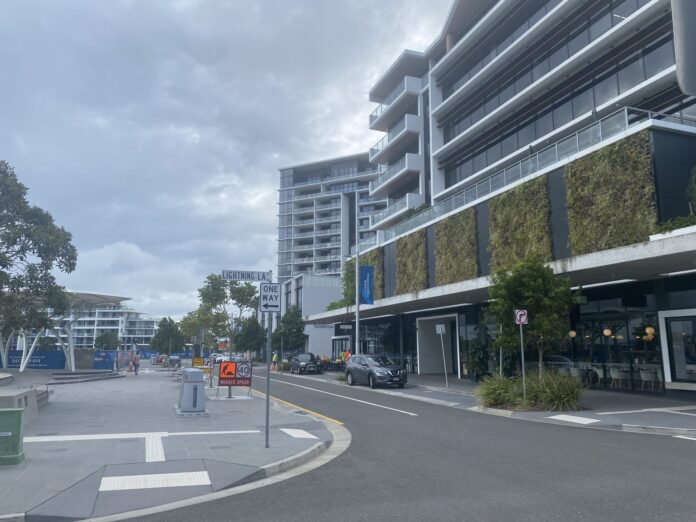The push to create Australia’s “first truly smart” central business district is rushing ahead in the heart of the Sunshine Coast.
It was just over four years ago when then-Local Government Minister Stirling Hinchliffe and Mayor Mark Jamieson opened a largely vacant 53-hectare site to the public.
Now, large parts of the area are occupied by booming commercial, retail, residential and dining precincts.
And there’s plenty more to come.
A council spokesperson said the CBD would be a bright and modern area.
“Sunshine Coast Council’s vision for the Maroochydore City is to create a vibrant hub of commercial and cultural activity, underpinned by outstanding liveability, technology and innovation; a truly contemporary 21st century city centre,” they said.
Do you have an opinion to share? Submit a Letter to the Editor at Sunshine Coast News via news@sunshinecoastnews.com.au. You must include your name and suburb.
“Residents, local businesses and visitors are already benefitting from what has been delivered in our new city centre and these benefits will only expand as the development continues.
“We are rapidly creating a city centre which our community can be proud of, and which will become a magnet for new investment and generate enduring employment for residents.”
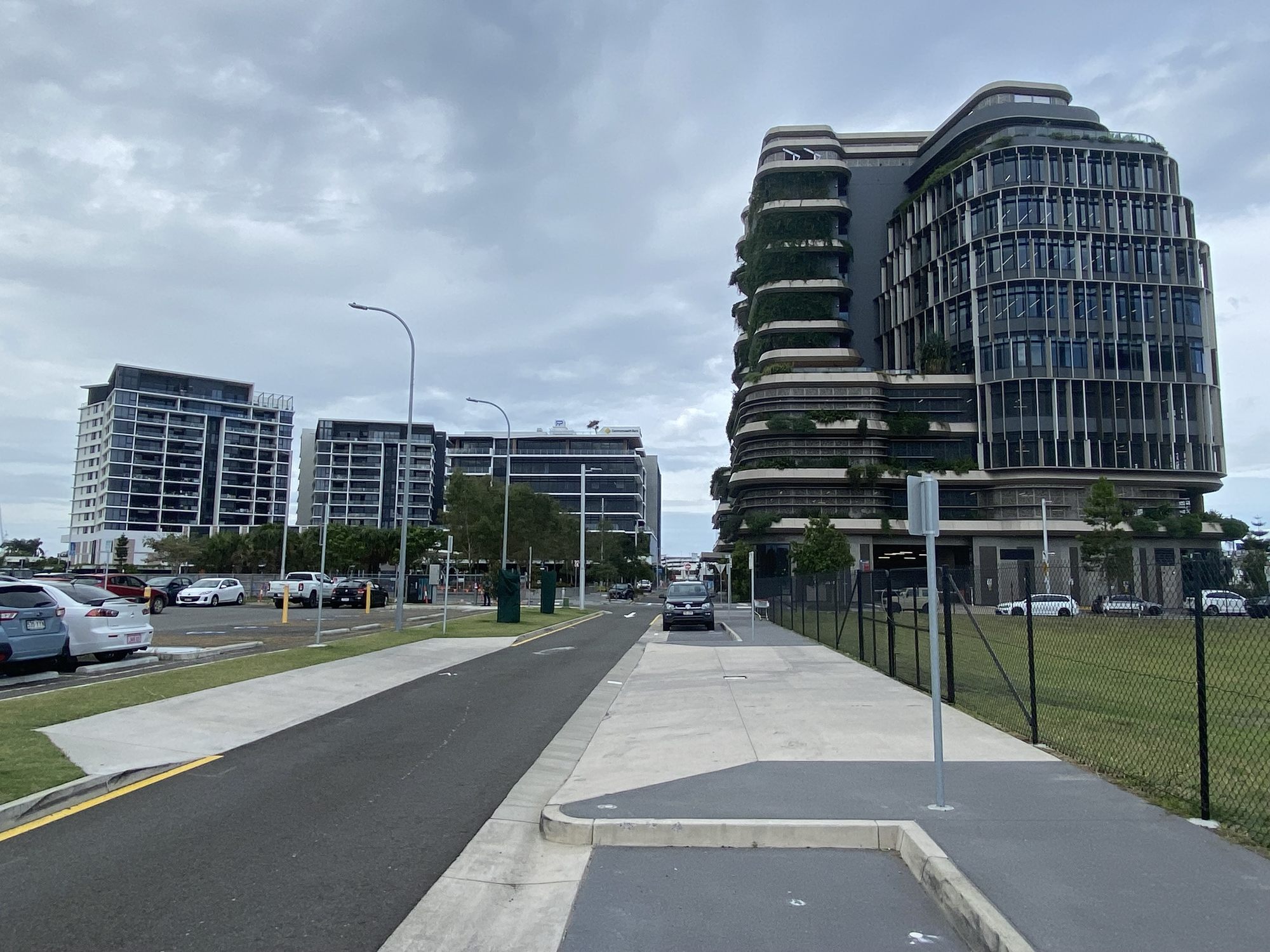
The first steps towards a CBD were taken when council purchased the Horton Park Golf for $42m in in 2012 and the golf club relocated to Maroochy River.
Scroll down for a pictorial timeline of the area
The state government declared it was a priority development area in 2013 and basic earthworks started in 2014, when a scheme was introduced to “create a new central business district for the Sunshine Coast, support economic development and build much-needed infrastructure”.
A cable landing station opened in 2019, providing the fastest Australian east coast data connection to Asia and the second fastest to the United States.
The CBD development stepped up a gear in 2020, when council and SunCentral (the council-owned body overseeing the design and delivery of the city centre) entered an agreement with urban property developer Walker Corporation to market and develop most of the remaining land via a $2.5b investment.
Australia’s first automated waste collection system was opened in 2021, when it was also announced that the city centre would be a location for an athletes’ village at the 2032 Olympic and Paralympic Games.
A host of large-scale buildings quickly rose from the ground from 2020 to 2023, including the five-storey Foundation Place, a commercial space with a bustling dining precinct (opened in 2020); the 181-room Holiday Inn Express Hotel, which includes retail and dining (2022); the 14-level 81-apartment Market Lane residential towers, which includes retail and dining (2022); and the three-level A1 commercial building (2023).
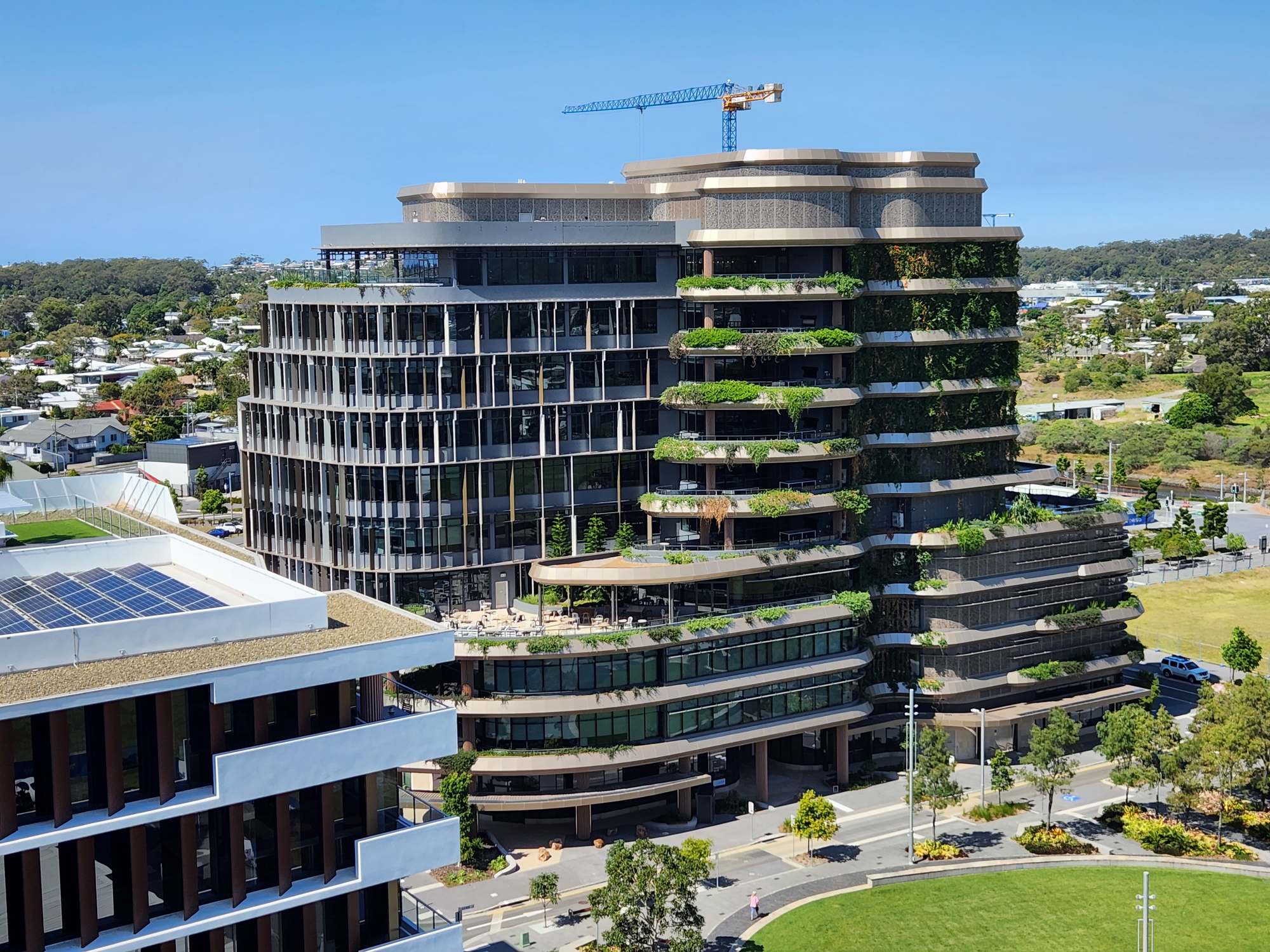
The centrepiece is Sunshine Coast Council’s $100m City Hall (2022). The 10-storey building, which sparked plenty of debate, is home to council employees, with a top-floor event space for hire.
Businesses and companies were quick to buy and lease space in each of the buildings, while culture, artworks and eateries were incorporated into the area, which quickly developed a social scene.
The CBD from September 2015 and May 2023. Aerial imagery by Nearmap.
But there is more to come.
Construction is underway for 50 First Avenue, a 15-storey office tower, which will also include a sky-garden rooftop and retail tenants.
Also in the pipeline is the 15-level, 158-apartment The Corso residential tower, which is set to be completed at the end of next year.
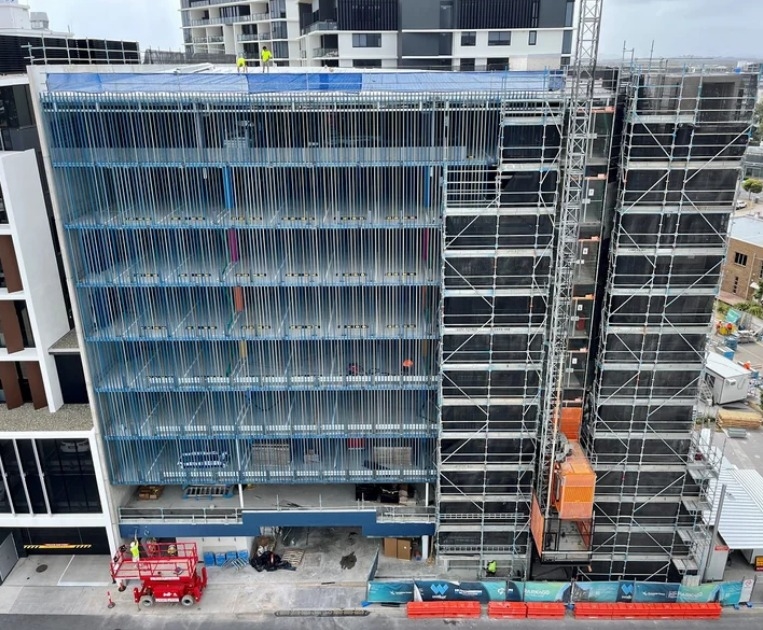
Construction has also started on an $100m eight-storey private hospital, which is expected to lead the way for surgical research and innovation. Tenants will include the University of the Sunshine Coast and orthopaedic company Medacta.
And an eight-storey, 295-space paid parking car park, on Lightning Lane, is also going up and is expected to open by the end of the year.
More residential and commercial towers are expected in coming years, and the CBD is expected to be a leading location for more tech companies, especially with its rapid connectivity. There are already several global enterprises with headquarters in the area.
There should also be 18 hectares of green space, including a vast lake, while delivery of a convention and exhibition centre remains with the council, which would need support from state and federal governments.
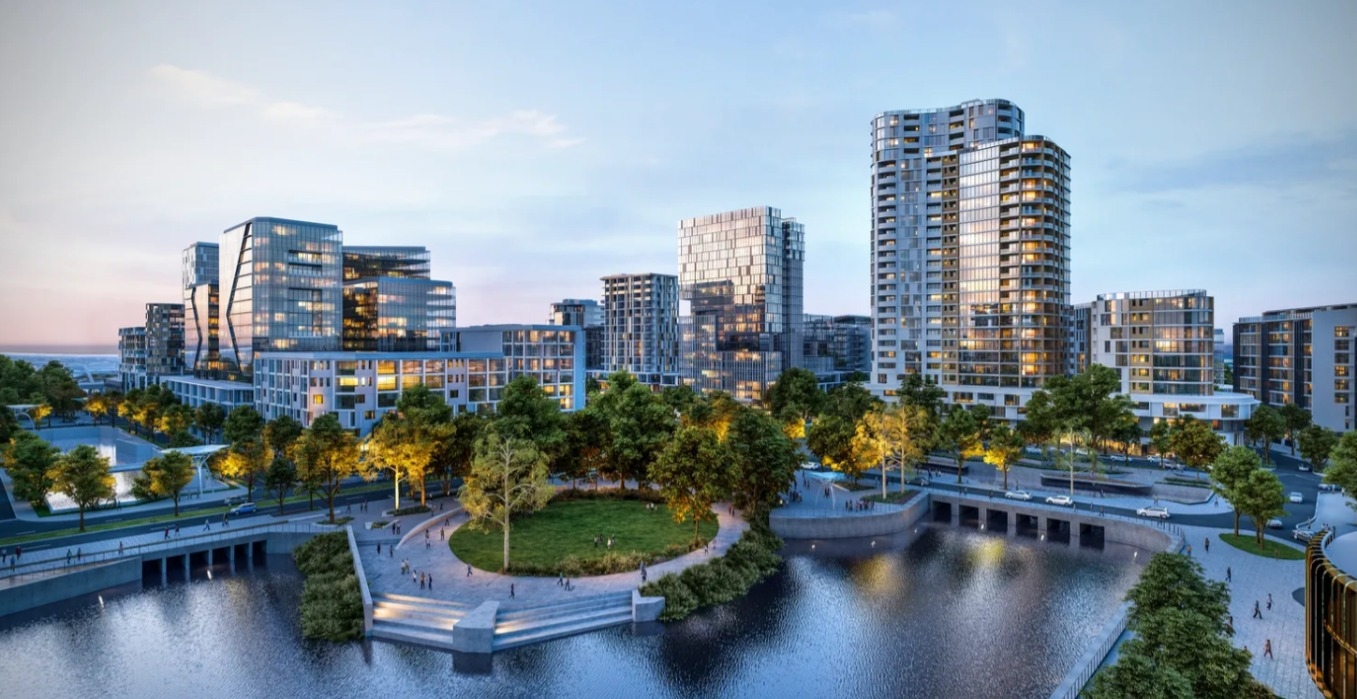
The CBD is expected to be completed within 15 to 20 years. It’s estimated that more than 15,000 jobs will be created during the life of the CBD project.
The Maroochydore City Centre Development Agreement aims to reassure residents that the Sunshine Coast will not become a version of the Gold Coast.
“The development reflects core values and design objectives that are consistent with the Sunshine Coast’s values, lifestyle and landscapes,” it says.
“While there are a variety of building heights dispersed across the Maroochydore City Centre, the site is set well back from the coastline and will, for the first time, provide a genuine commercial and entertainment heart to support what is the second fastest growing region in Queensland.”
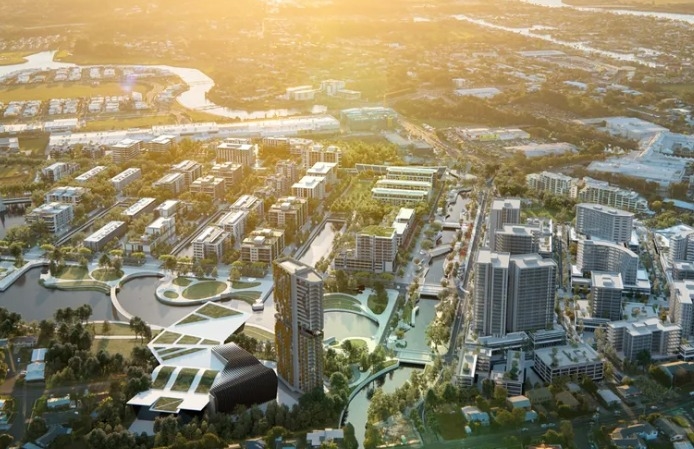
The CBD includes a network of roads and large car parks, but it is expected to be served by future transport options and a transit station.
There is the possibility of a heavy rail line being built from Beerwah to Maroochydore, with the dual track stopping at a station at the CBD.
There is also the possibility of a Sunshine Coast Public Transport system, featuring bus rapid transit or light rail from Caloundra to Maroochydore.
Both projects are in planning stages and subject to funding from levels of government.
City centre site pictured through the years
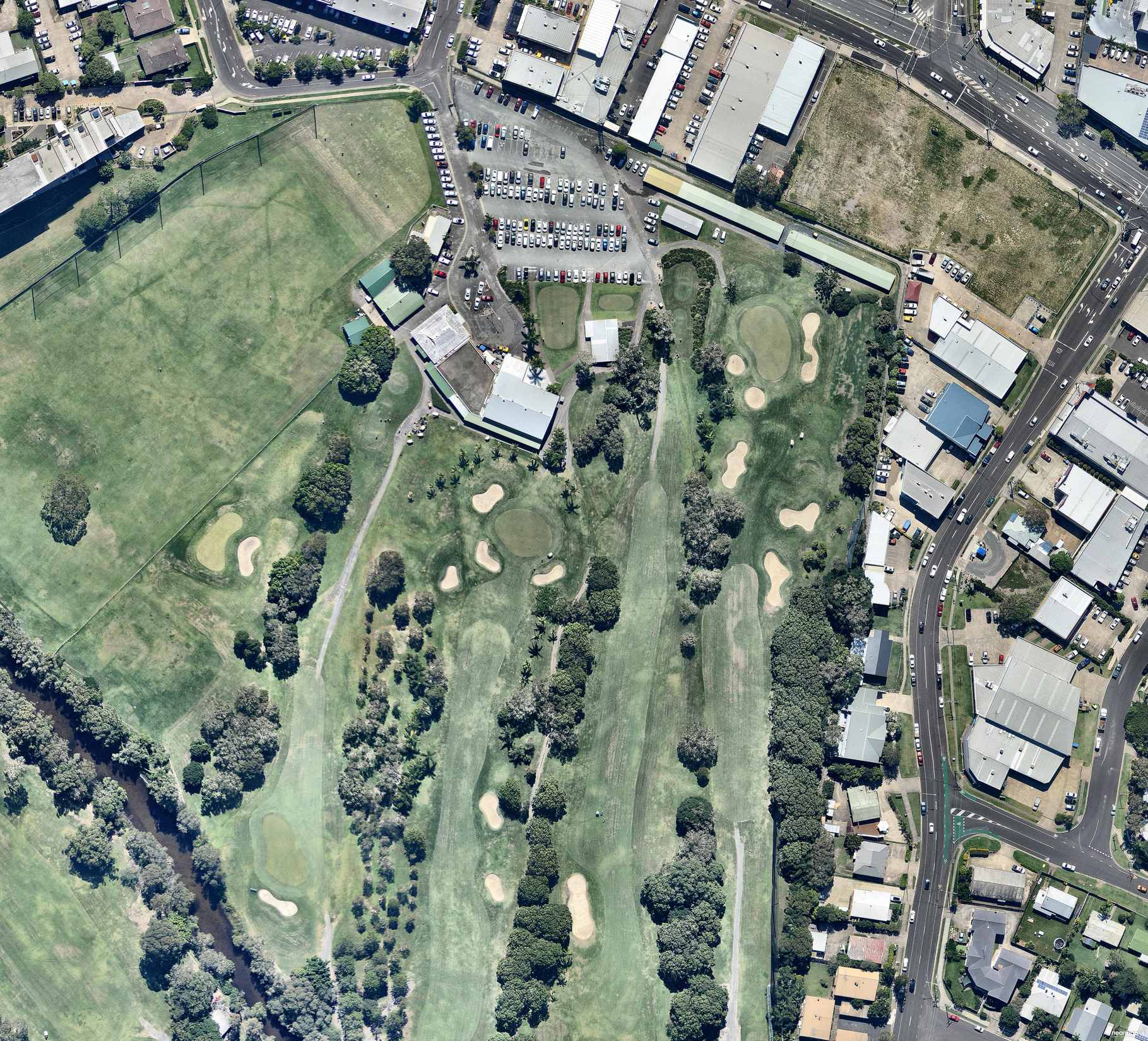
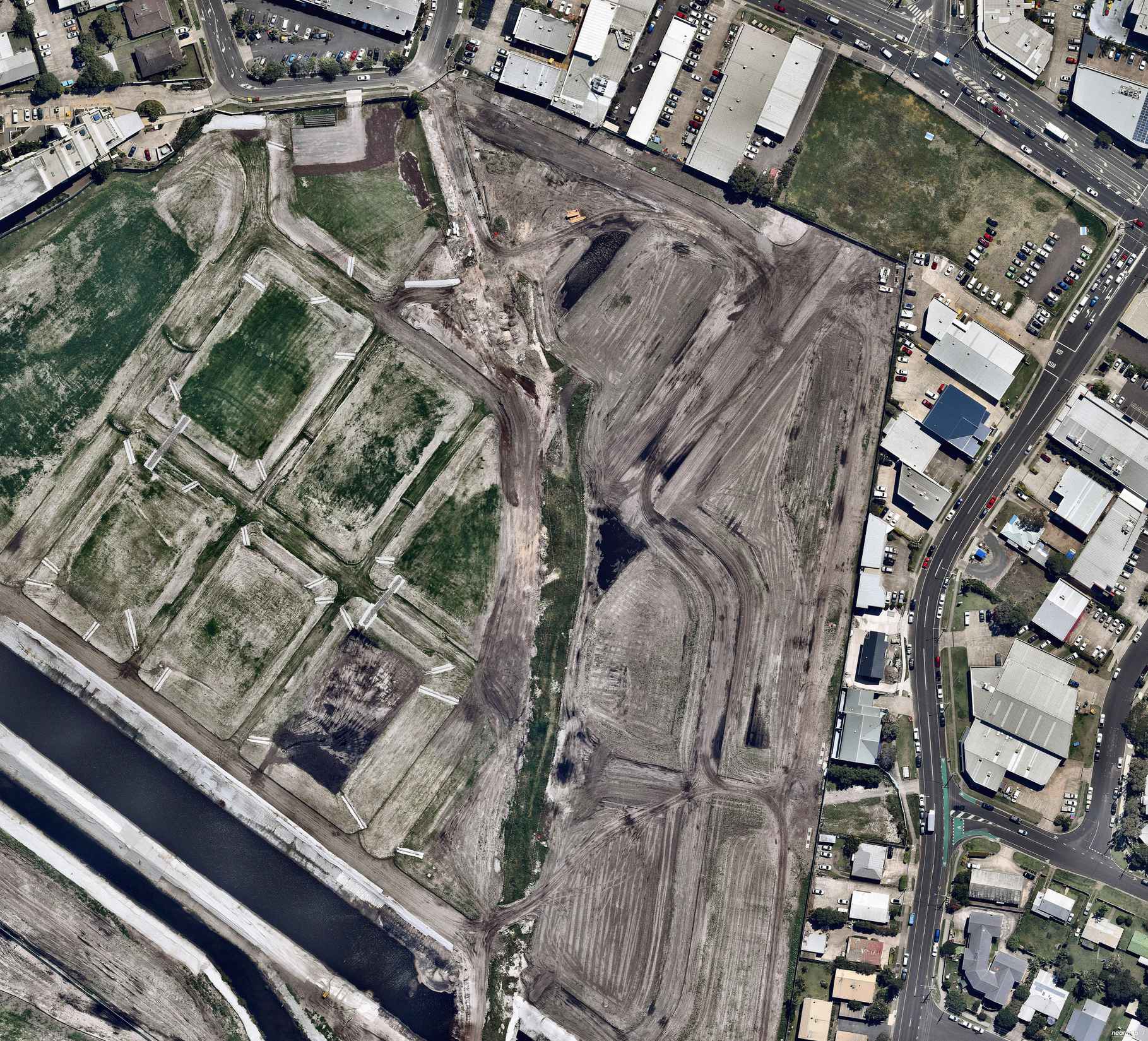
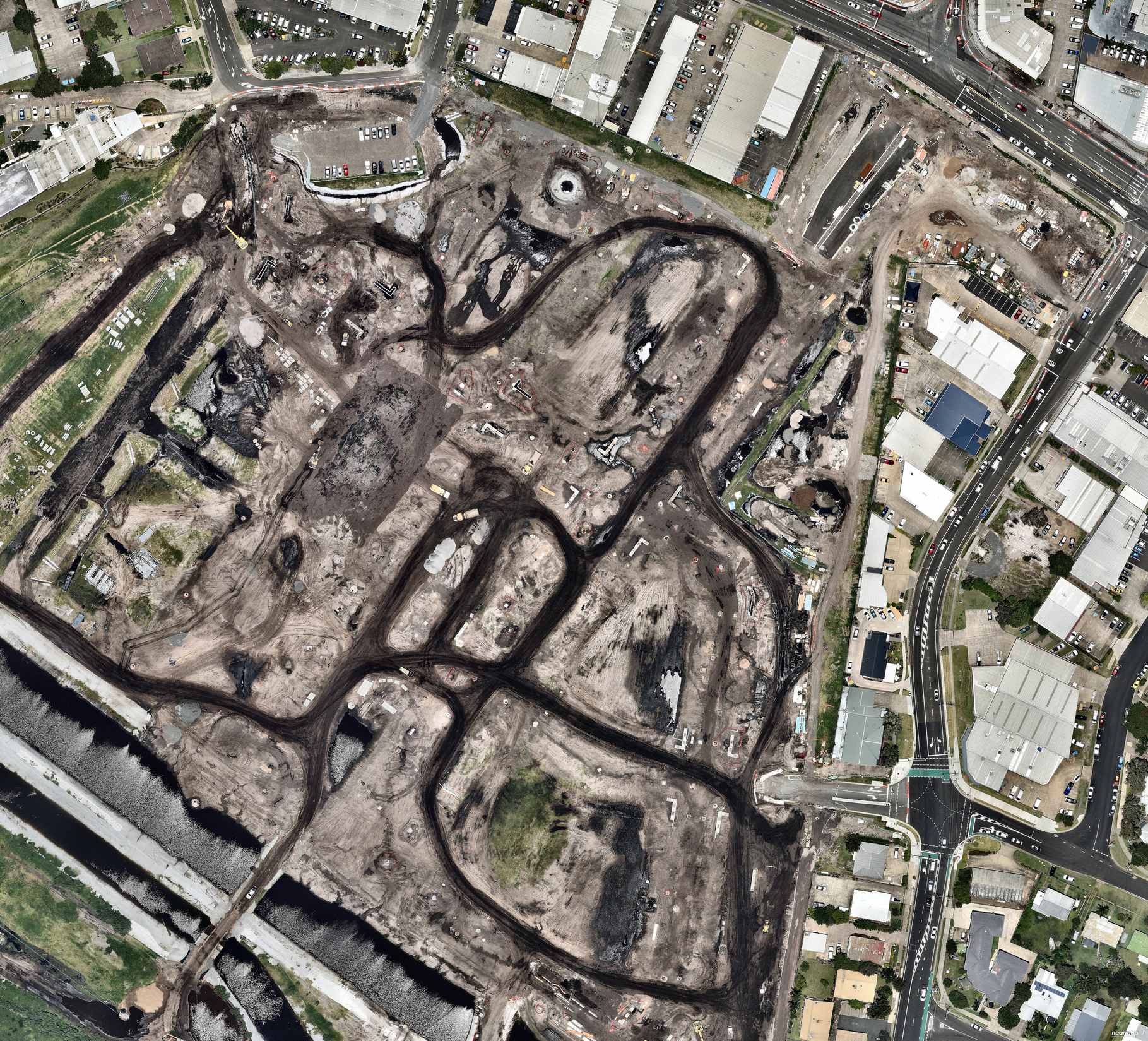
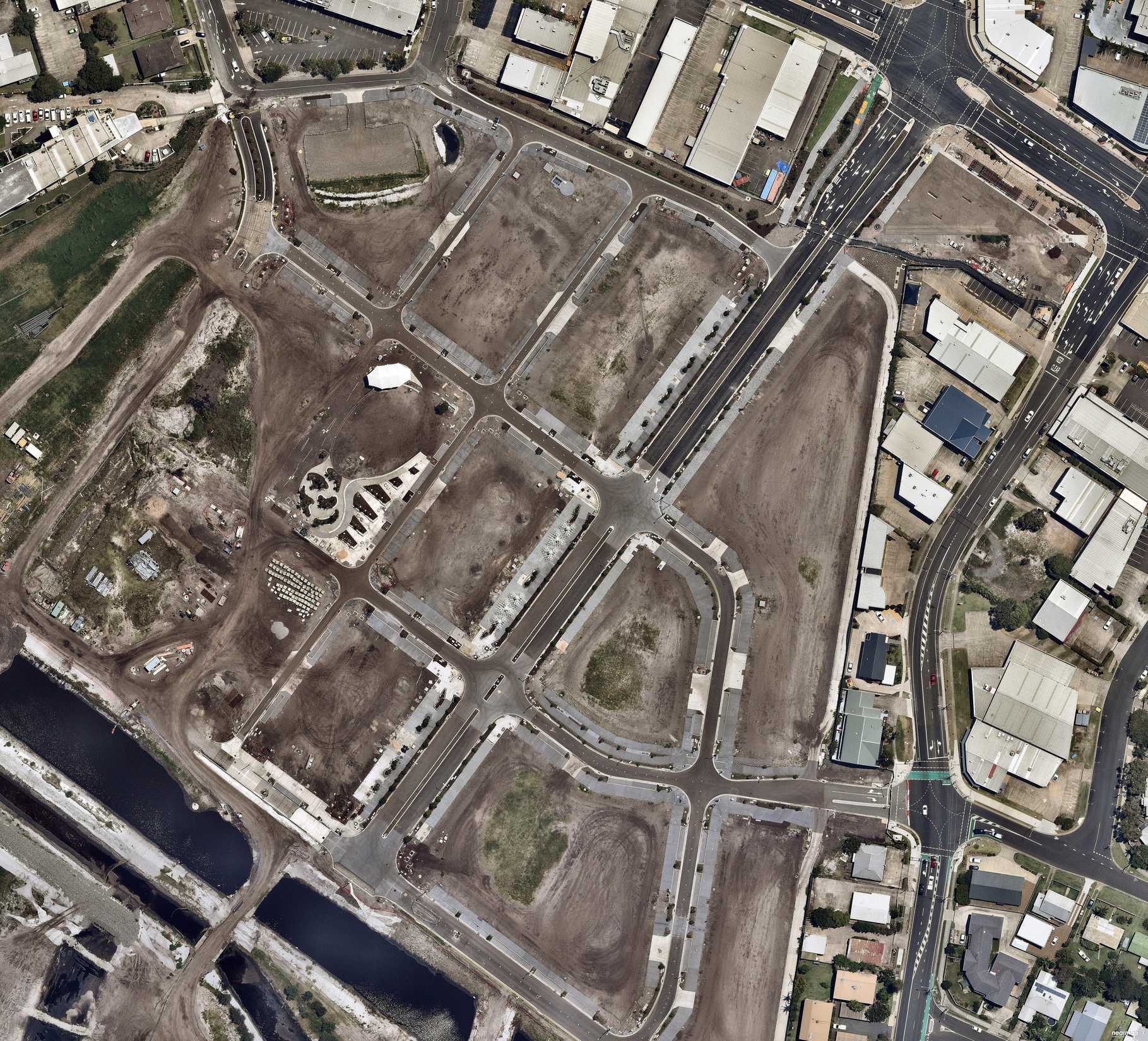
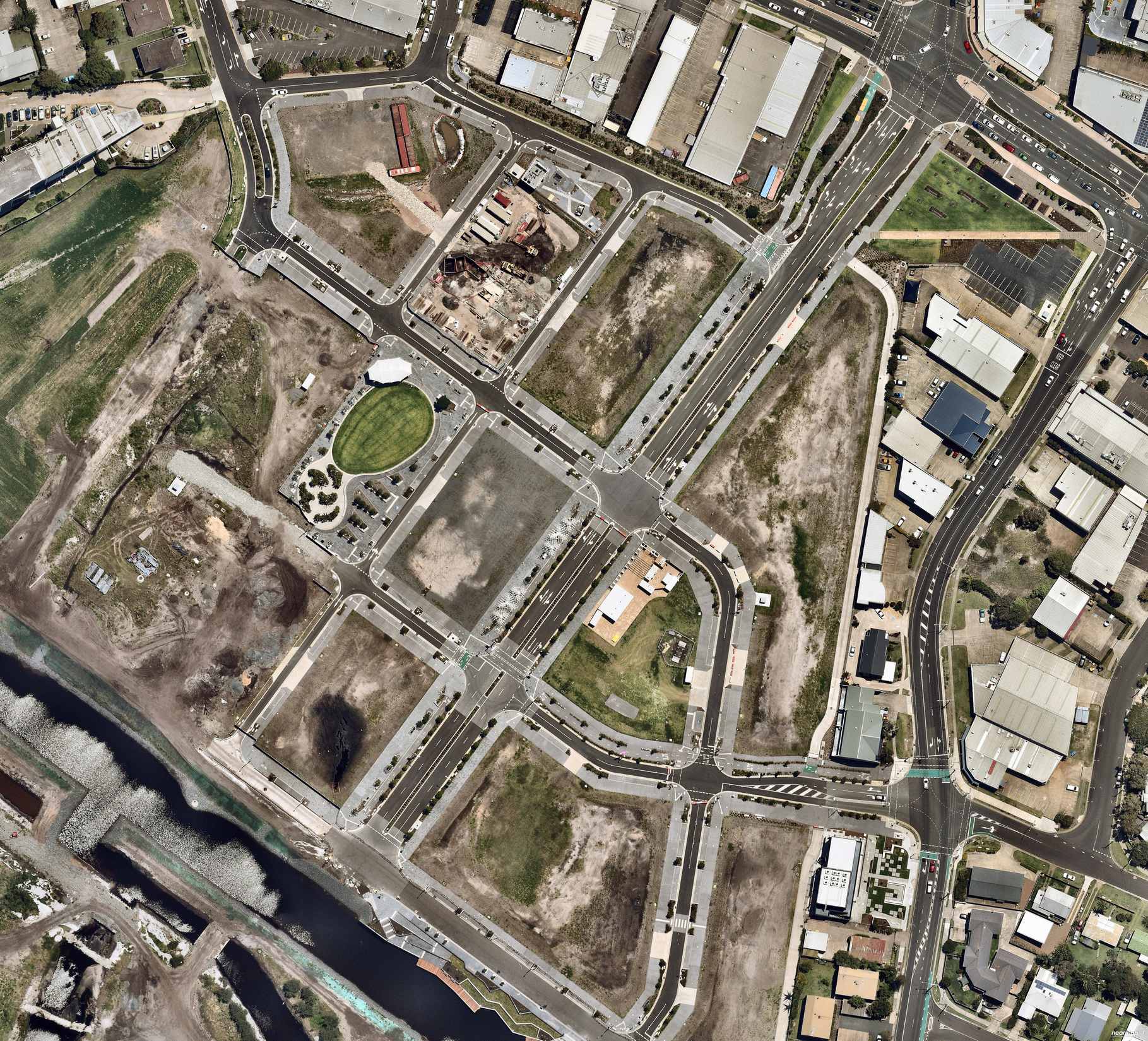
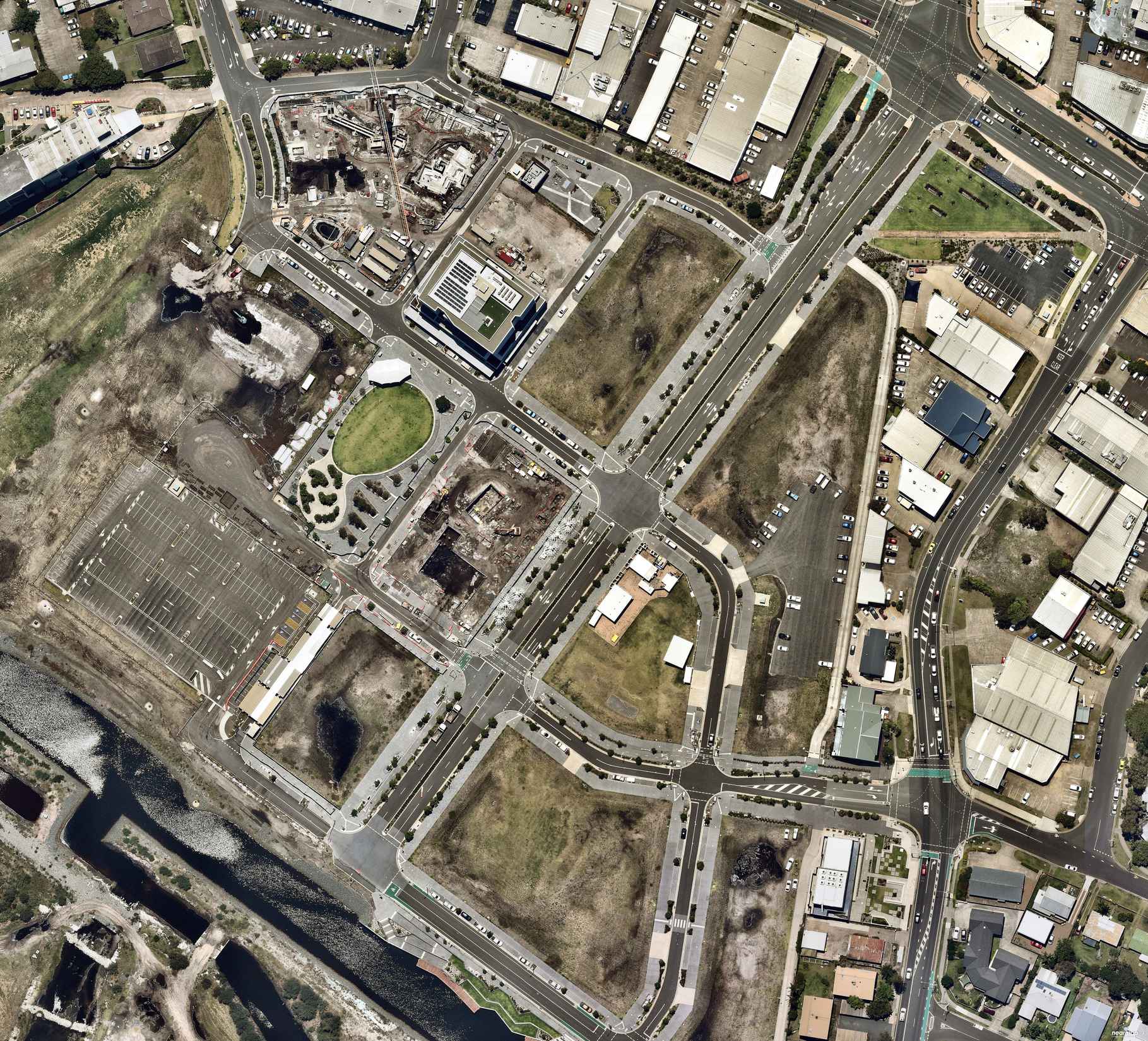
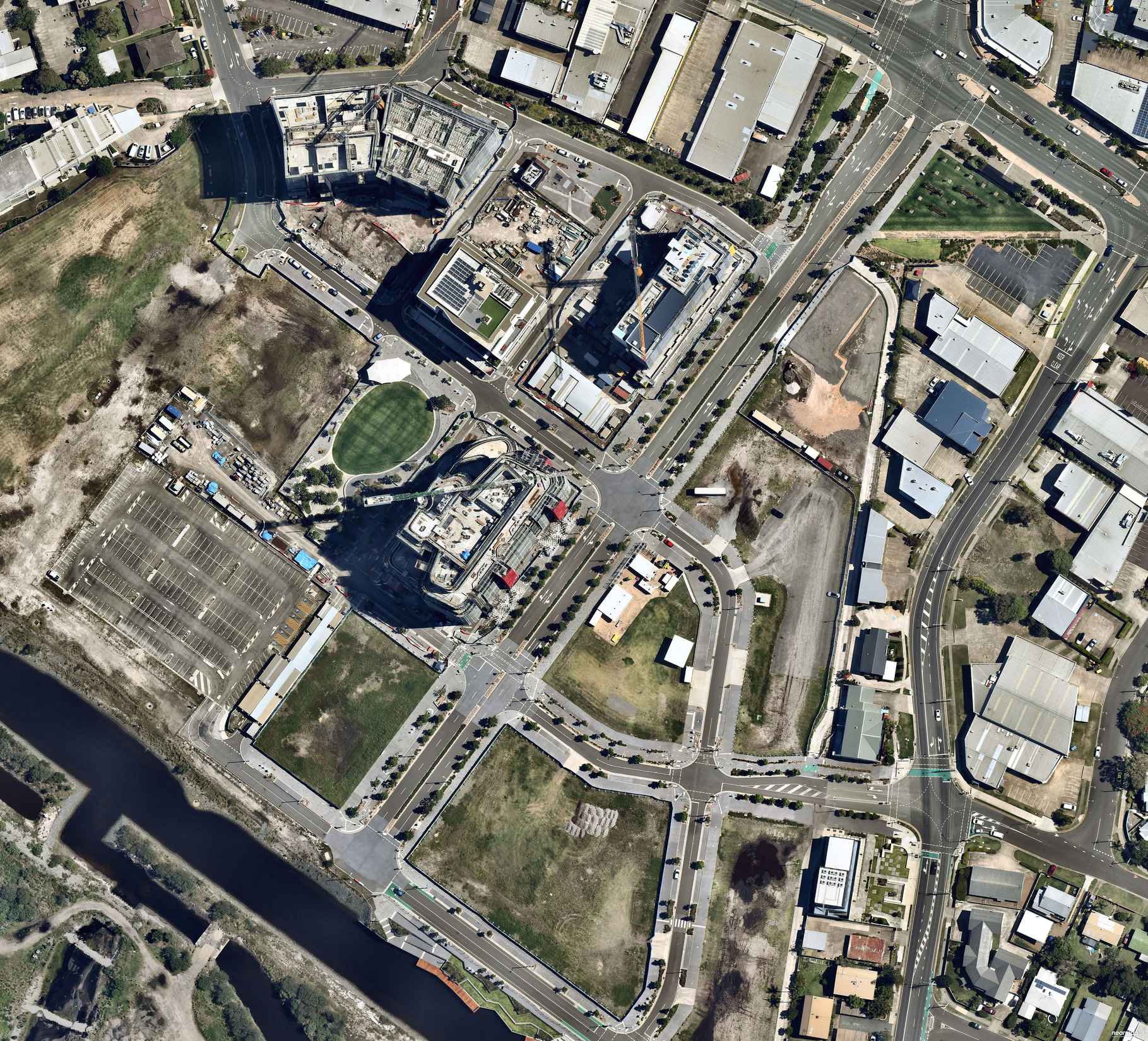
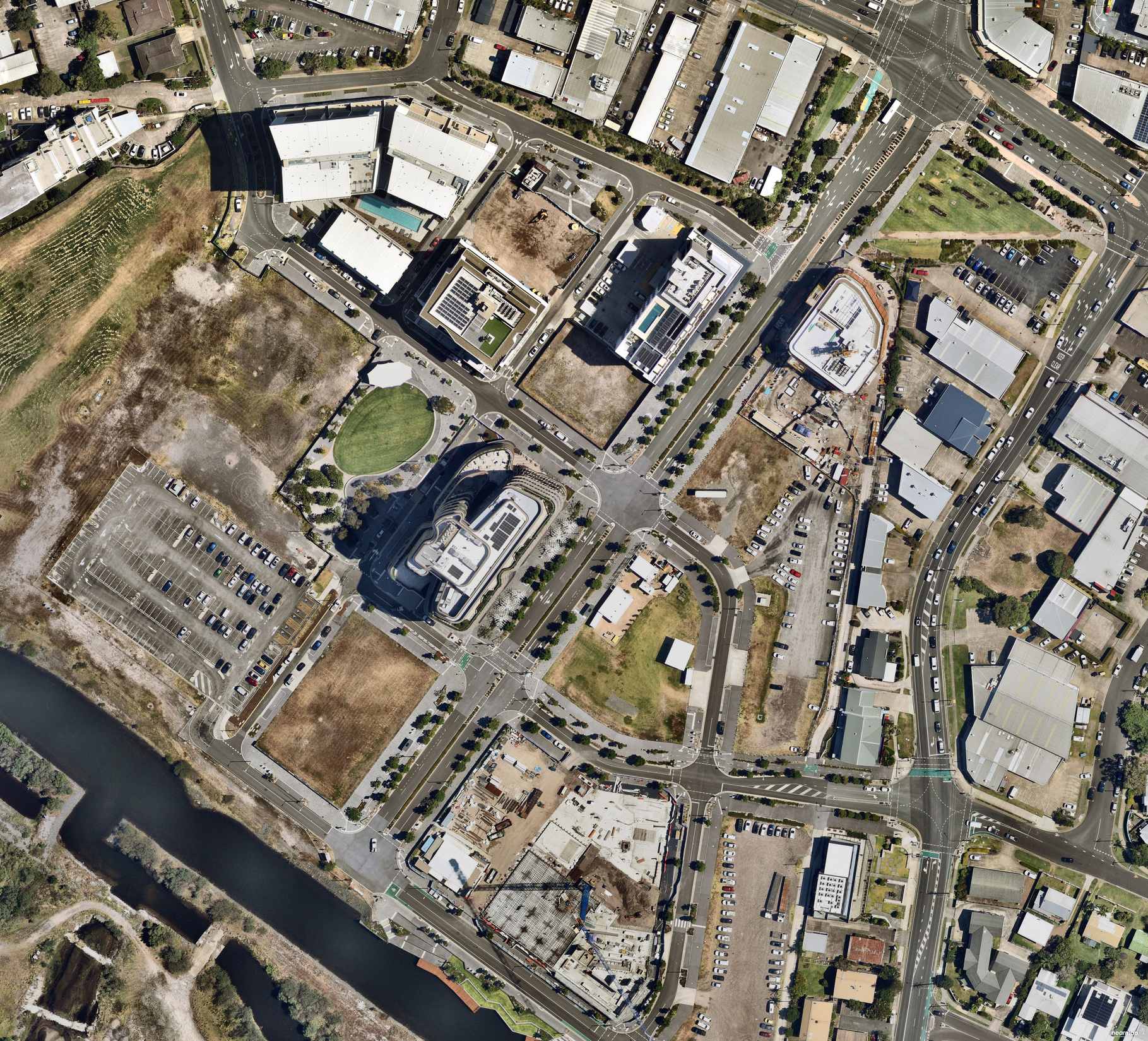
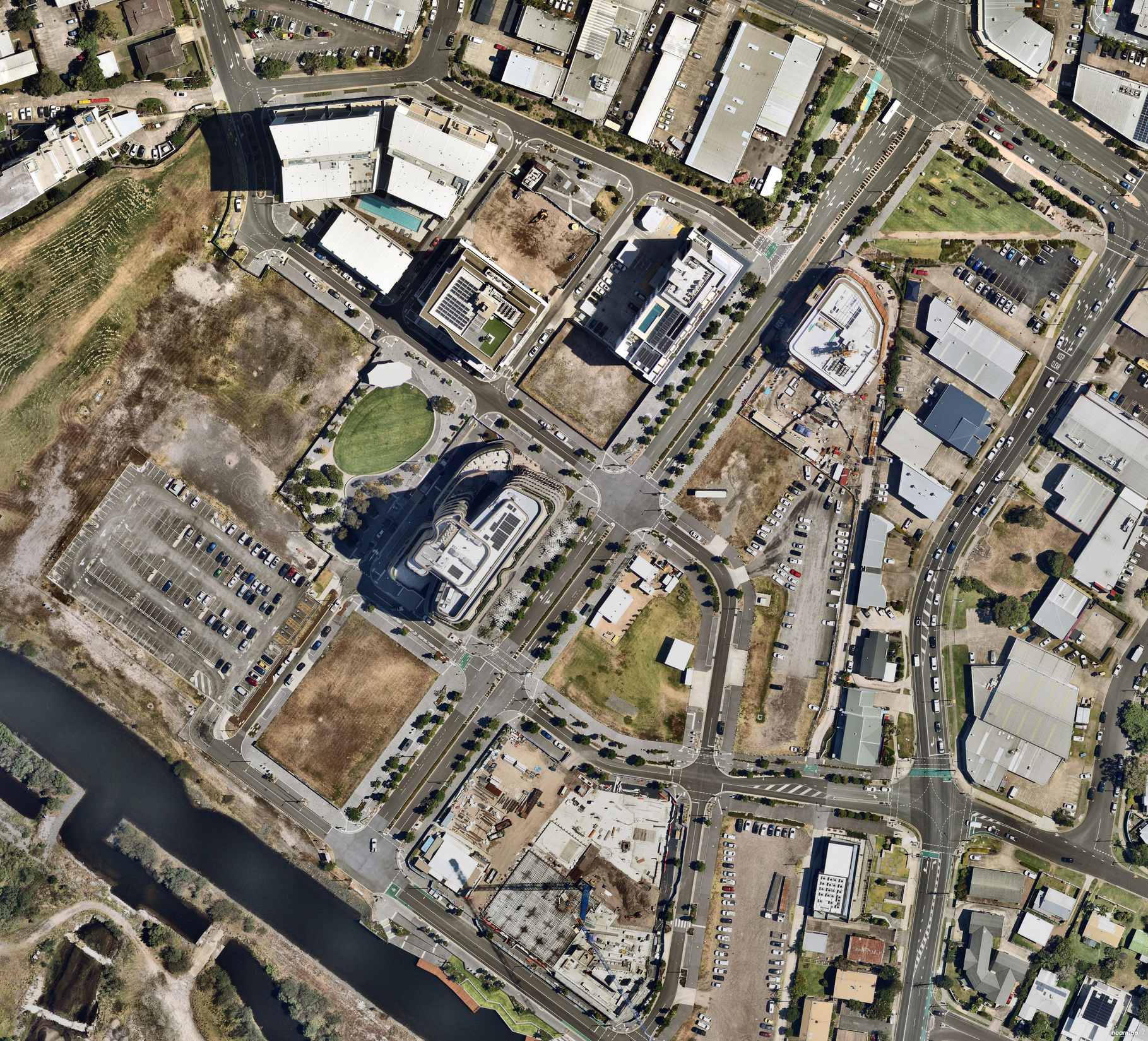
Help us deliver more news by registering for our FREE daily news feed. All it requires is your name and email at the bottom of this article.
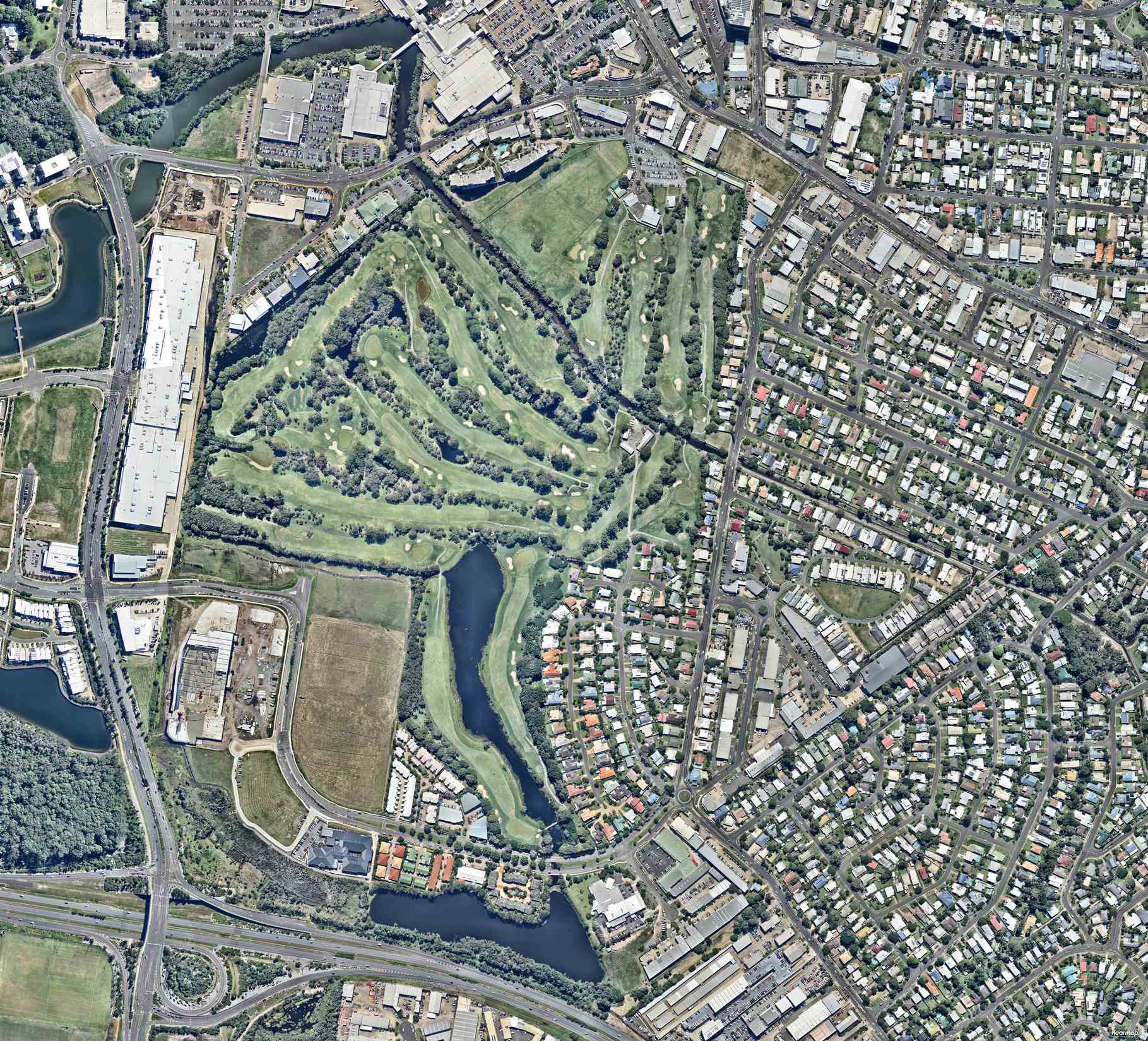
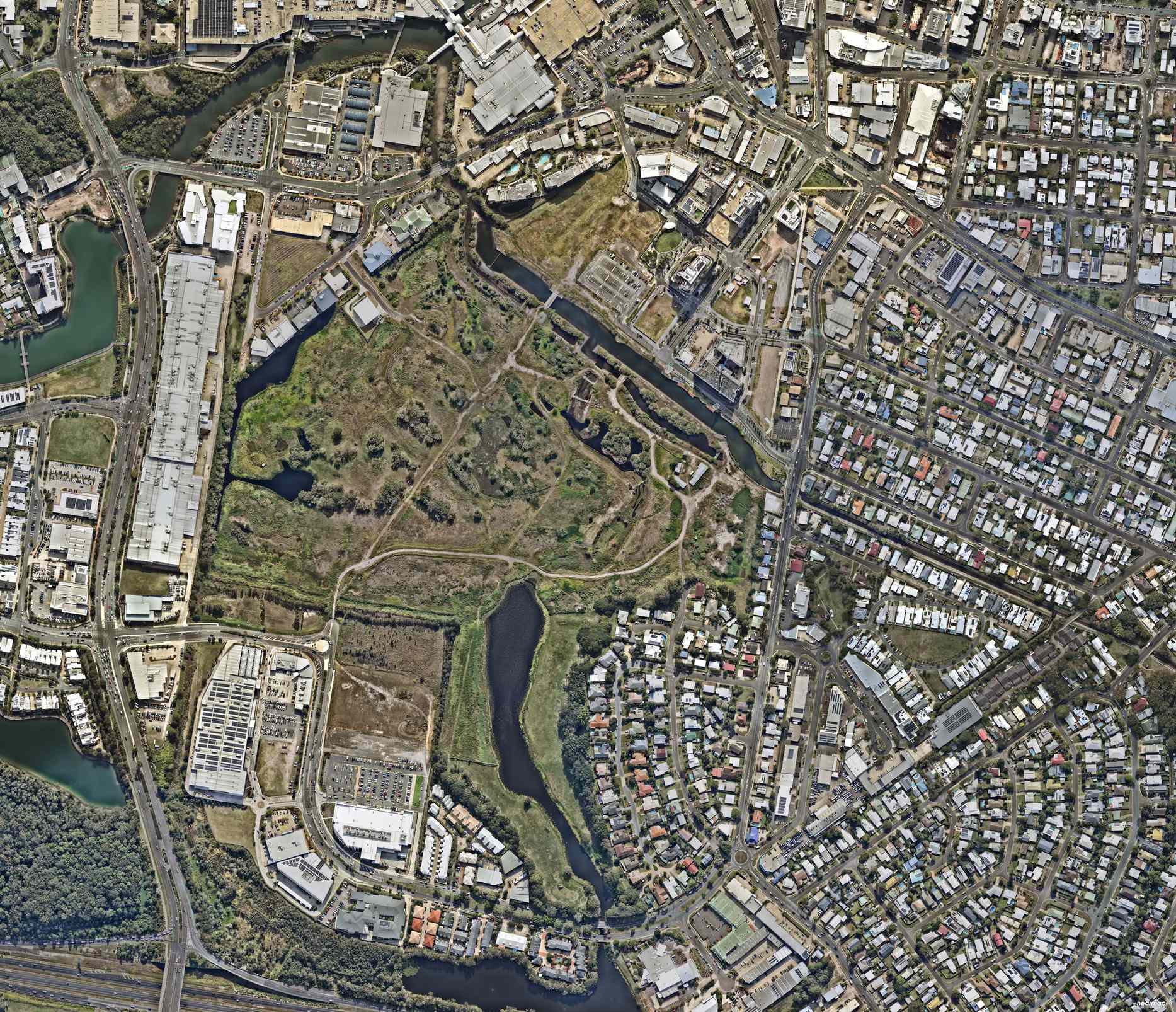
The aerial imagery in this story is from Australian location intelligence company Nearmap. The company provides government organisations, architectural, construction and engineering firms, and other companies, with easy, instant access to high-resolution aerial imagery, city-scale 3D content, artificial intelligence data sets, and geospatial tools to assist with urban planning, monitoring and development projects in Australia, New Zealand and North America.


